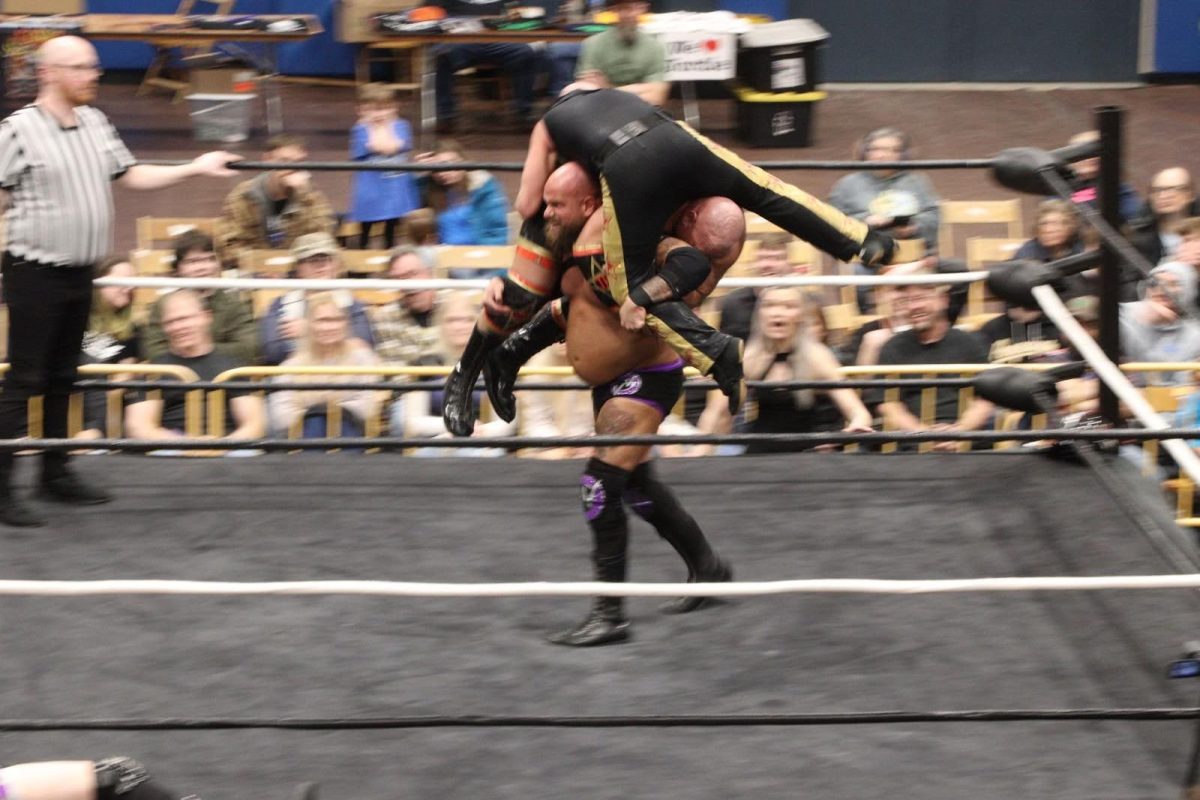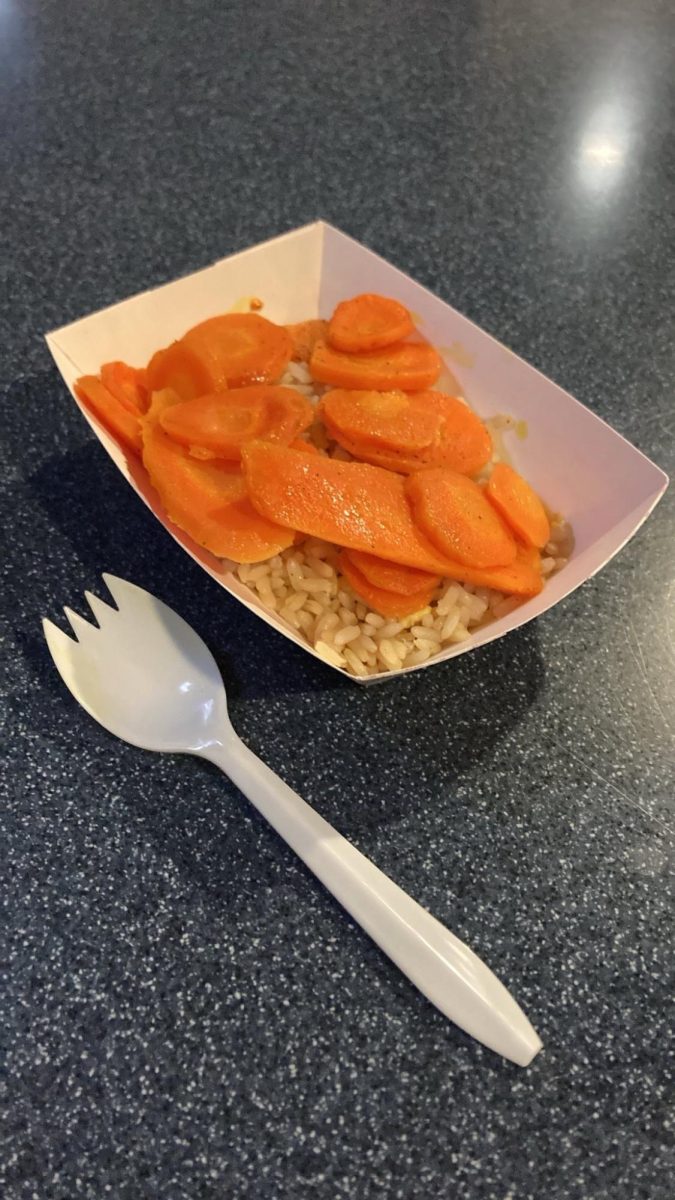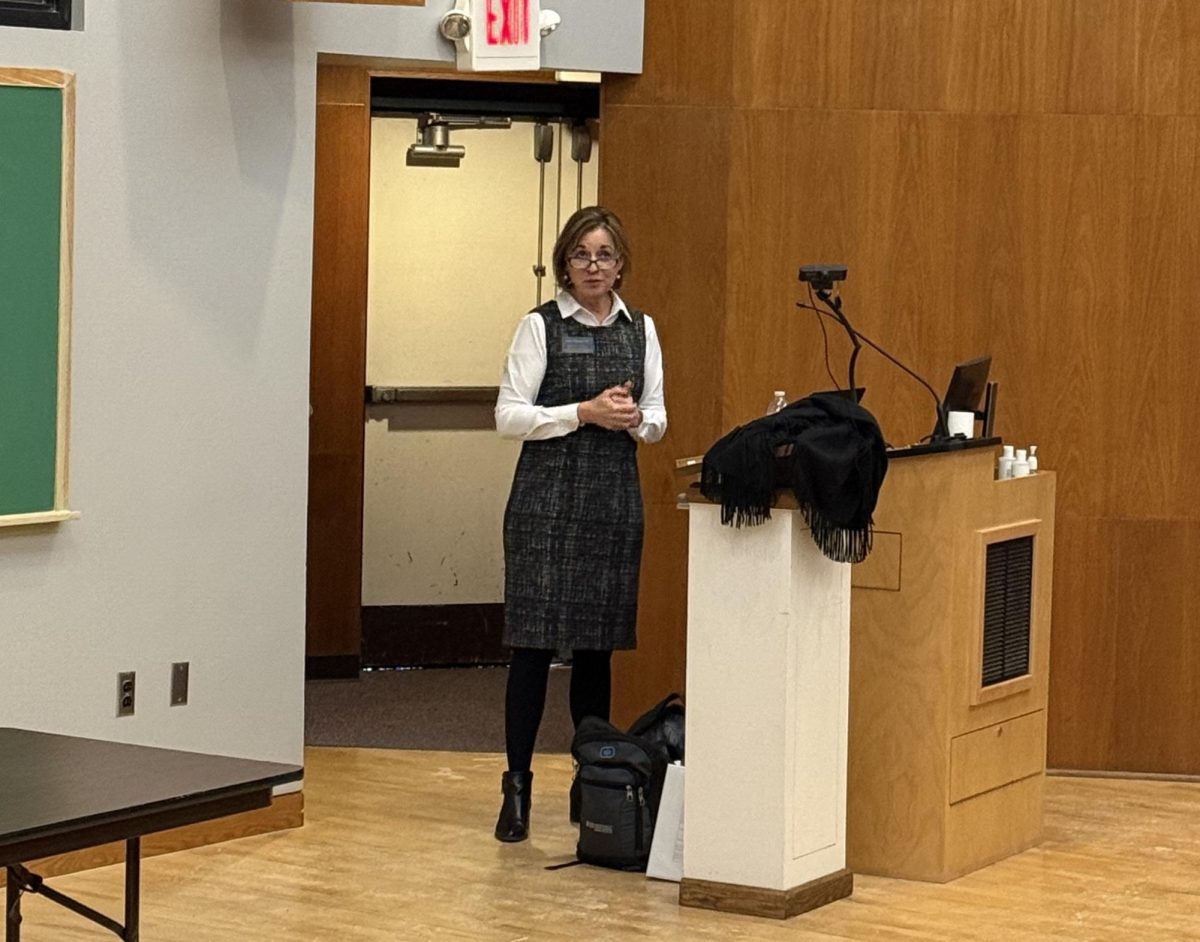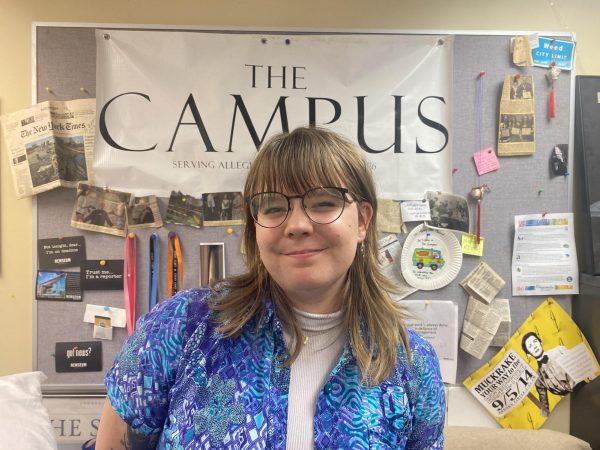As the 2024 presidential election nears and the atmosphere on Allegheny’s campus seems to get more tense, alumni from multiple generations reflected on the political climate when they were students.
“Civility is dead,” said Matt Betush, ’06, assistant professor of chemistry and biochemistry.
To Betush, the most important difference between his time as a student and his time as a faculty member is that now it is almost impossible to have conversations with people who do not agree with each other.
“I remember vividly that the Allegheny Democrats and the (Allegheny) Republicans co-hosted an event in the campus center on election day,” Betush said, referring to the 2004 presidential election in which President George W. Bush faced off against Sen. John Kerry. “People went up and they colored states blue or red based on what they thought was going to happen. People were watching it jointly, you know? I mean, that was a pretty split election but it wasn’t like there was security that needed to be there. That doesn’t happen now.”
Betush said that type of environment does not show up now and that the contention around politics pervades many everyday occurrences, like while teaching class and talking to his neighbors.
“My roommate and I, we disagreed politically but when we had discussions it was fine,” Betush said. “It’s so easy to want to incorporate hatred into politics and it’s like, we can’t do that. I don’t really have a lot of political ideas that I’m really passionate about, right, but (now), even if I did, I’m not bringing it up in class. Or even talking to friends!”
Kelly Boulton, ’02, Director of Sustainability, has had a similar experience.
“Politics at that time was a lot more civil,” Boulton said, referring to the election in 2000. “We (Allegheny College Democrats) would engage with the College Republicans to get people registered to vote. So there was a lot more, like, ‘Hey, we’re in this together.’ It’s a lot more polarized now. My sense of the general political climate is like, we just don’t talk about it now. We definitely don’t collaborate with each other.”
Voting in 2004, Betush explained that the biggest issue politically he encountered during his time at Allegheny was same-sex marriage. Even then, though, Betush said hatred was not spewed nearly as much as he believes it to be now.
“I think the biggest incident we had on campus was when someone wrote on the sidewalk in front of the campus center with chalk, ‘The Bible says Adam and Eve, not Adam and Steve,’” Betush said. “I don’t think they ever found out who it was. But there weren’t protests or anything. I mean, that was the biggest thing that happened.”
Kimberly Womack, ’85, was a student on campus during the 1984 presidential election between Ronald Reagan and Walter Mondale. During her time, Womack said students were generally not involved in politics, unless they were members of political organizations. However, there were protests on campus advocating for the college to divest from investments related to apartheid in South Africa, according to Womack.
“They even set up a tent camp where the alligator statue is now,” Womack said. “There were people camping there to protest the apartheid. Other than that, there wasn’t really much else going on. It was kind of quiet.”
In general, this seemed to be the consensus among Betush, Boulton and Womack; unlike today, they did not really feel the need to be constantly heavily involved in politics as students.
In the upcoming 2024 presidential election, Pennsylvania is one of the key swing states that will determine the outcome of the election. Boulton – originally from Ohio – explained that during the 2000 election, she had not really needed to consider the impact of voting in a swing state.
“It’s one of those things that I didn’t think about too much when I was in college,” Boulton said. “Swing states have definitely become more of a conversation. I mean, Pennsylvania is the swing state, so there’s a lot more conversation about coming to Allegheny and registering to vote in Pennsylvania.”
Maybe the most outstanding difference between voting then and now is the presence of social media and Wi-Fi. In fact, none of the alumni interviewed had Wi-Fi at the time of the presidential elections.
“I really think that social media and the expediency of news is the biggest difference between our two worlds,” Womack said. “Occasionally, there would be newspapers. Of course, the student newspaper was a source of information. But it was a time period where unless you sought it (the news) out, it wasn’t easily accessible to you.”
In a lot of ways, Betush thinks social media might be part of the cause of the recent increase in political polarization and violence.
“We can consume content 24/7,” Betush said. “When something happens, there’s 25 to 50 videos of that thing on the internet right away. In 2004, text messaging was pretty much the limit. We didn’t have Wi-Fi. You can always point to this 20-second sound bite that someone said, and it’s usually part of a broader conversation and that becomes misconstrued.”
Despite the less extreme political environments during Womack’s and Boulton’s times on campus, it is something that did matter to them. Even though Womack was not heavily involved with political organizations on campus, she still voted. “I think it must have been really important to me,” Womack said. “Because I took the time to get a mail-in registration. That was not an easy thing to do then. It wasn’t one of those things where you could just hop online and register. I mean, it took effort back then. So, I’m inclined to say that whatever was going through my head at the time, I felt and knew that it was important for me to honor that privilege and responsibility that we have as citizens.”
If Boulton could offer one piece of advice to current students after reflecting on her own time as a student, it would be that continued engagement with politics is crucial to the outcome of who gets elected into office.
“I know we, as student organizations, were on campus trying to register people,” Boulton said. “I think something I observe now is that sometimes our human nature is if we’re given a choice between two candidates and we don’t 100% love either of them, I think there’s a tendency to disengage. If we choose not to engage because they’re not perfect, then we lose the opportunity to get the candidate we can really work with.”
Overall, Betush, Boulton and Womack all believe politics now are as important — and maybe even more important — as they were during their times at Allegheny.
“I think the tendency to back out of the conversation and back out of voting when it’s not perfect is really scary to me,” Boulton said. “Go vote. Everyone needs to vote. It’s the only way we get any say in anything. So, just go vote.”









